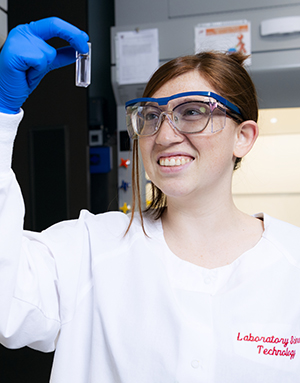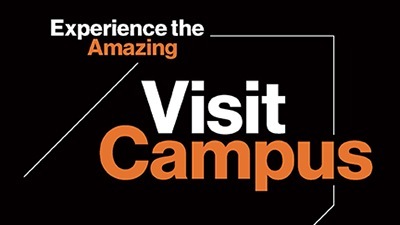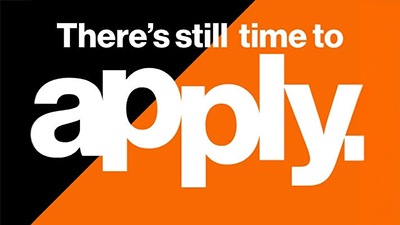NCCC Success Story
RIT / National Technical Institute for the Deaf / Experiential Learning / Success Stories / Spotlight
Lemmy Wathan
Laboratory Science & Technology
Researcher

Where is your hometown?
My hometown is located in Turlock, California, USA.
What was your degree program and graduation date at RIT/NTID?
My graduation date is May 10, I'll be graduating as an AAS degree student, and my major is Laboratory Science & Technology, short for LST.
What is your preferred language of use: ASL, spoken English, both, or another language?
I am bilingual, so for right now, my preferred language is English, both spoken English and ASL.
What was your high school experience like? Were you mainstreamed, the only deaf person in the class, or were you enrolled with deaf classmates?
I have moved around, so my high school experience was limited at best. I had switched high school four times. I graduated from Fremont, California School for the Deaf, CSD, in 2019. Thankfully, for that. I was mostly mainstreamed at a young age until my late adolescent years when I entered high school in CSD. Yes, I was always the only Hard-of-Hearing person during the early high school years. (I wasn't deaf until I was 17)
What was your college search process like, and what reasons made you choose RIT/NTID?
My college search process was not wide but rather selective. I was stuck between UC Davis in California and RIT/NTID. UC Davis is much harder to enter and requires a higher SAT/ACT score plus GRE, which I didn't have unfortunately. RIT was more accommodating and didn't always require the test scores to enter. I chose RIT because I wanted to gain ground with my selection of courses since my goal is to become a veterinarian, which is tough for someone like me.
Did your identity as a deaf/hard-of-hearing person have an impact on your college choice?
As a kid, I identified as HOH until the age of 17 then after becoming fully impaired, I identified myself as Deaf currently. It did not, I knew my hearing imparied would impact but I scored high enough in all my college classes. If I were to select a hearing college with no support or accommodations, then I would truly struggle. Luckily, NTID/RIT already ahd that covered for me.
What makes RIT a good fit for you?
As I mentioned above, it accommodates my hearing impairment, and it has my deaf culture ingrained into the college, it may not have the resources for someone like me, not all the courses have the veterinary requirements, but it had science requirements that I accomplished. RIT/NTID wasa good fit for me.
Are there any unique benefits gained at RIT/NTID that you could not find elsewhere?
Their counselors, the support from the staff, the familiarity, and RIT makes this place feel better, like a home you've finally found your place in. RIT has a lot of unique benefits that are too many to name.
What are your peers like at RIT/NTID? Do you have a mix of hearing/deaf friends?
I do have a sort of a mix, but most of my peers are HOH and Deaf. Few friends are hearing a know ASL.
Are you involved with any extracurricular activities on campus?
I used to be part of the Westren Equestrain Team back in 2019–2020. I've been part of the pre-vet club since 2019 and am still going strong with it.
What is your career goal?
My career goal is to be a veterinarian. I haven't decided if I want to be a board certified veterinary surgery specialist or a travel veterinarian. I'm leaning more to the travel veterinarian side.
How has your experience at RIT/NTID prepared you for your career?
I learned a lot from my peers, my counslers, and my beloved professers. The science aspect is very interesting and has helped me broaden my horizons. I have already prepped and planned for three possible vet colleges and to shadow a local veterinary here in NY.
If possible, what one word would you use to describe RIT/NTID?
Home
If applicable, what was your co-op employer name and location?
Isaiah Sumner, James Madison University, Chemistry Department.
If applicable, what was your position at your co-op and what were the role’s responsibilities?
My position was researcher, and my roles were testing and checking coding for the ubiquitin protein, updating and adding new information in the coding system and writing down the results in the notebookk.
If applicable, how did your co-op relate to your studies at RIT/NTID?
It didn't relate to any of my studies, I mostly did wet lab during NTID classes, and computing was a first for me during my co-op experience. I've never learned to code or add code to the terminals, but it's a good way to learn from a researcher's perspective.




